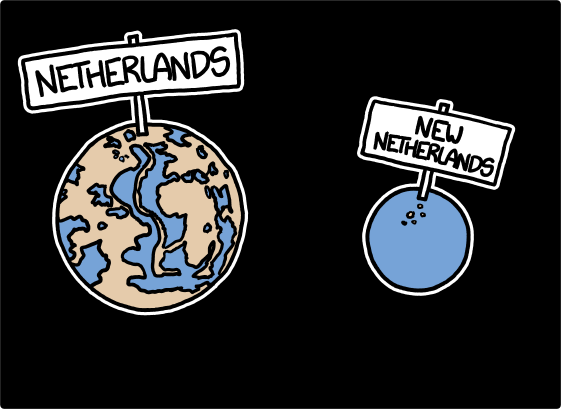Supposing you did Drain the Oceans, and dumped the water on top of the Curiosity rover, how would Mars change as the water accumulated?
–Iain
In the previous What If, we opened a portal at the bottom of the Mariana Trench and let the oceans drain out.
We didn't worry too much about where the oceans were draining to. I picked Mars; the Curiosity rover is working so hard to find evidence of water, so I figured we could make things easier for it.

Curiosity is sitting in Gale Crater, a round depression in the Martian surface with a peak, nicknamed Mt. Sharp, in the center.
There's a lot of water on Mars.[1]Donald Rapp, Accessible Water on Mars, JPL D-31343-Rev.7 The problem is, it's frozen. Liquid water doesn't last long there, because it's too cold and there's too little air.
If you set out a cup of warm water on Mars, it'll try to boil, freeze, and sublimate, practically all at once.[2]D. L. Santiago et. al., Mars climate and outflow events Water on Mars seems to want to be in any state except liquid.
However, we're dumping a lot of water very fast (all of it at a few degrees above 0°C), and it won't have much time to freeze, boil, or sublimate. If our portal is big enough, the water will start to turn Gale Crater into a lake, just like it would on Earth. We can use the excellent USGS Mars Topographic Map to chart the water's progress.
Here's Gale Crater at the start of our experiment:
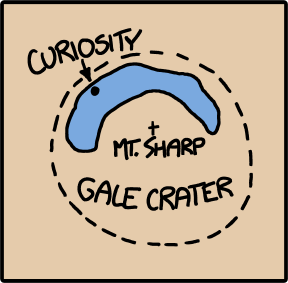
As the flow continues, the lake fills in, burying Curiosity under hundreds of meters of water:
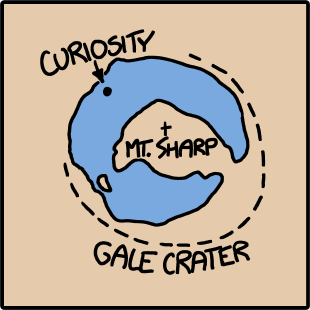
Eventually, Mt. Sharp becomes an island. However, before the peak can disappear completely, the water spills over the north rim of the crater and starts flowing out across the sand.
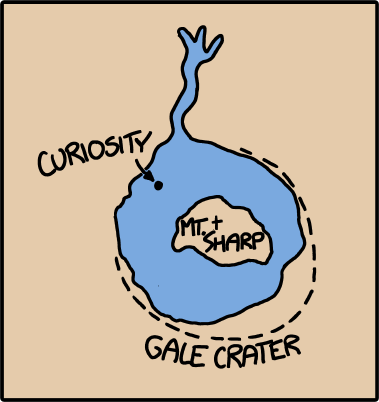
When this kind of thing happens on Mars in real life, the trickle of water quickly dries up before it can get very far.[3]D. L. Santiago et. al., Cloud formation and water transport on mars after major outflow events, 43rd Planetary Science Conference (2012) However, we've got a lot of ocean at our disposal.
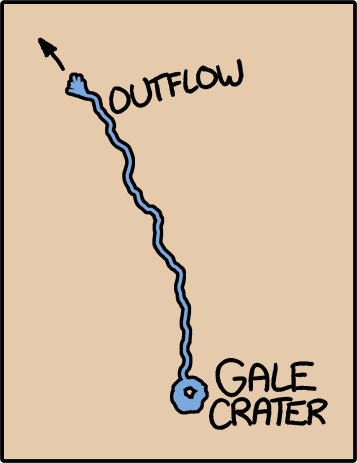
The water pools in the North Polar Basin:
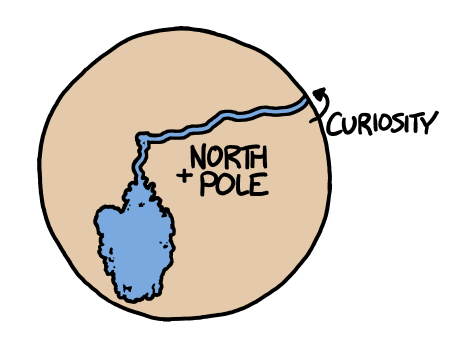
Gradually, it will fill the basin:
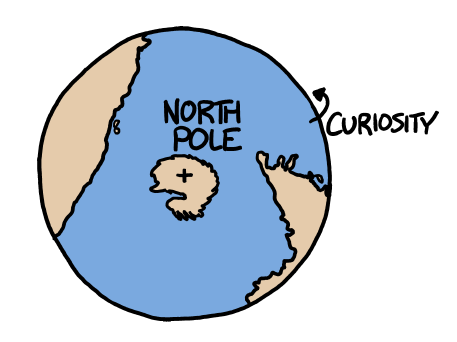
However, if we look at a map of the more equatorial regions of Mars, where the volcanoes are, we'll see that there's still a lot of land far from the water:
![[Mercator projection; does not show the poles.]](https://what-if.xkcd.com/imgs/a/54/mars_7.png)
Frankly, I think this map is kind of boring; there's not a lot going on. It's just a big empty swath of land with some ocean at the top.
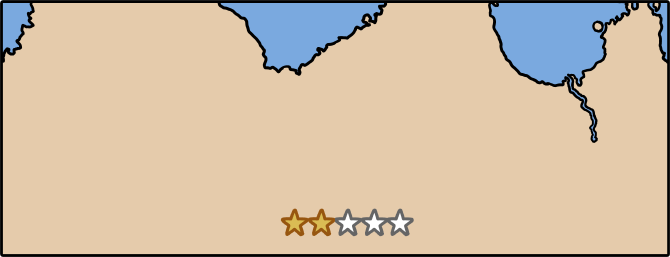
We haven't come close to running out of ocean yet. Although there was a lot of blue on the map of the Earth at the end of our last article, the seas that remained were shallow; most of the volume of the oceans was gone.
And Mars is much smaller than Earth, so the same volume of water will make a deeper sea.
At this point, the water fills in the Valles Marineris, creating some unusual coastlines. The map is less boring, but the terrain around the great canyons makes for some odd shapes.
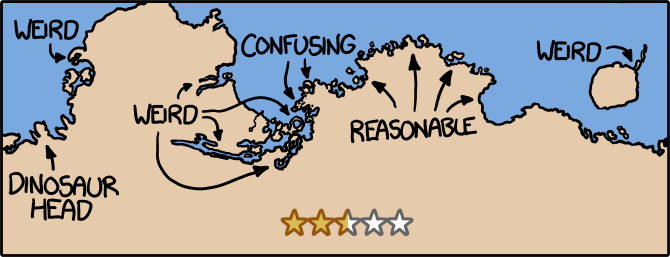
The water now reaches and swallows up Spirit and Opportunity. Eventually, it breaks into the Hellas Impact Crater, the basin containing the lowest point on Mars.
In my opinion, the rest of the map is starting to look pretty good.
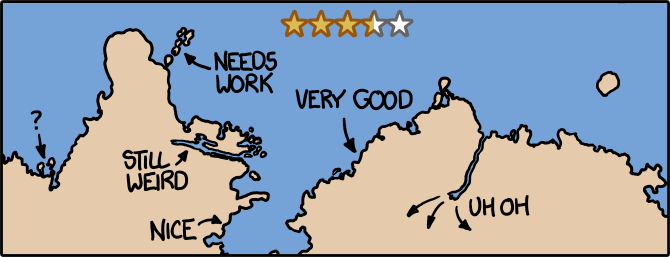
As the water spreads across the surface in earnest, the map splits into several large islands (and innumerable smaller ones).
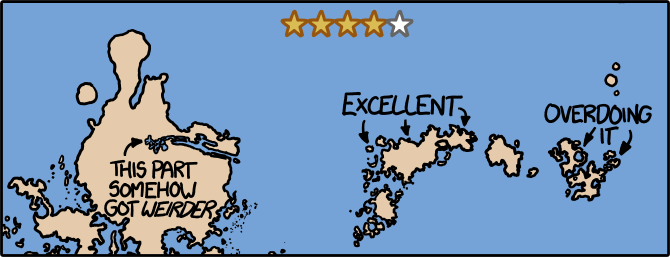
The water quickly finishes covering most of the high plateaus, leaving only a few islands left.
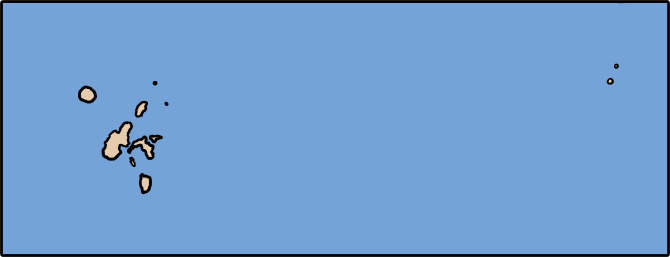
And then, at last, the flow stops; the oceans back on Earth are drained.
Let's take a closer look at the main islands:
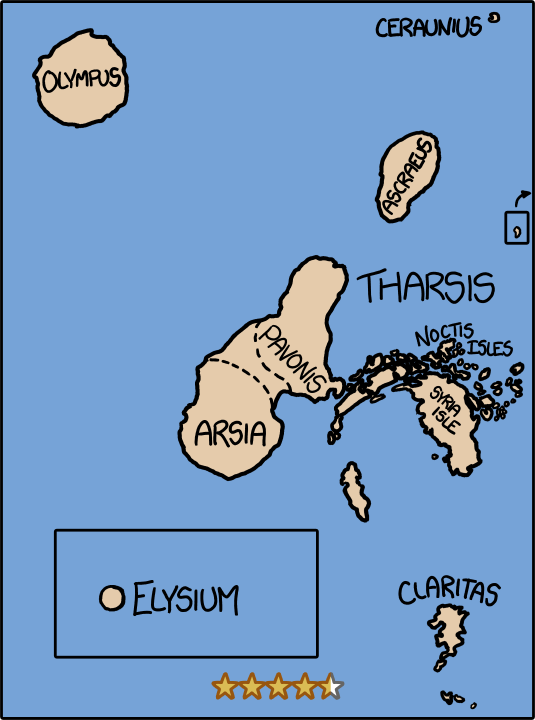
Olympus Mons, and a few other volcanoes, remain above water. Surprisingly, they aren't even close to being covered. Olympus Mons still rises well over 10 kilometers above the new sea level. Mars has some huge mountains.
Those crazy islands are the result of water filling in 'Noctis Labyrinthus' ('the Labyrinth of the Night'), a bizarre set of canyons whose origin is still a mystery.
The oceans on Mars wouldn't last. There might be some transient greenhouse warming, but in the end, Mars is just too cold. Eventually, the oceans will freeze over, become covered with dust, and gradually migrate to the permafrost at the poles.[4]Maggie Fox, Mars May Not Have Been Warm Or Wet
However, it would take a long time, and until it did, Mars would be a much more interesting place.
When you consider that there's a ready-made portal system to allow transit between the two planets, the consequences are inevitable:
